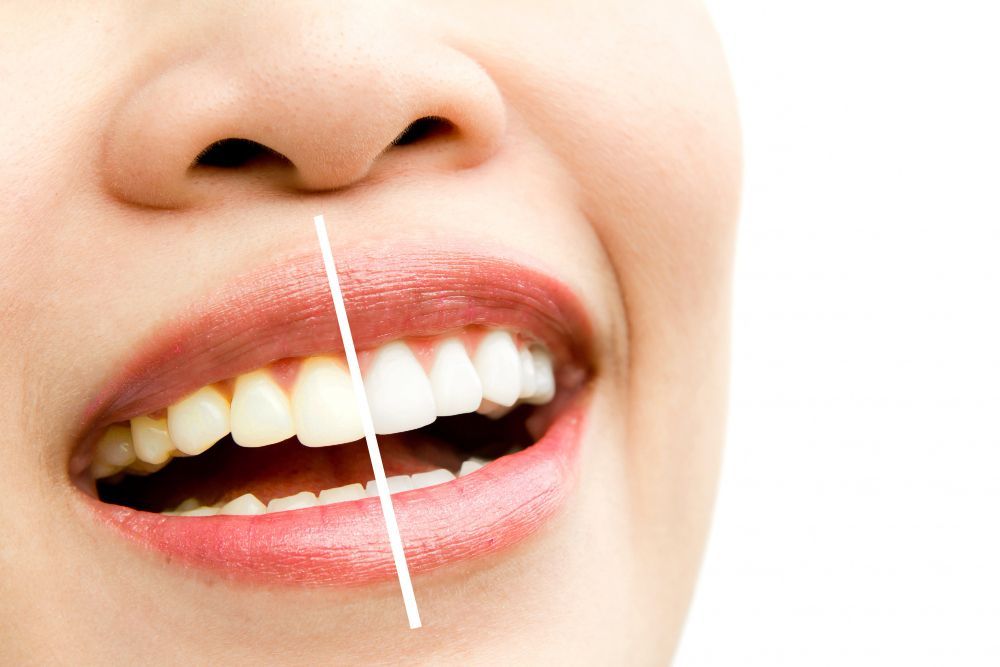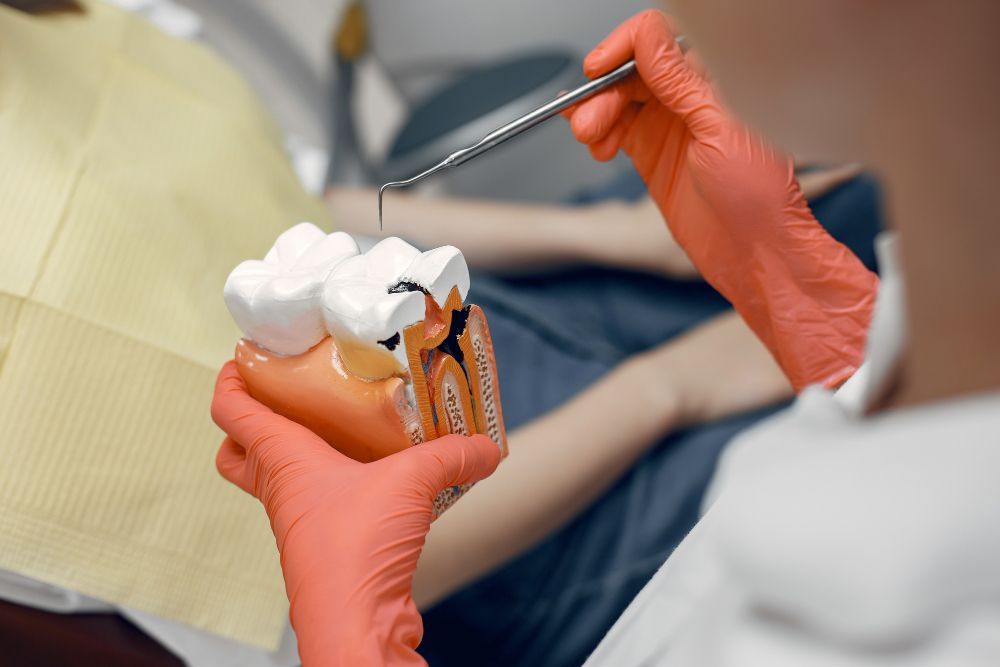Rayford Dental News

Missing teeth can affect much more than your appearance. They can change how you eat, speak, and even how confident you feel every day. If you’re looking for a long-term solution, dental implants are considered one of the most reliable and natural-looking ways to restore your smile. At Rayford Dental , located near Rayford Road in Spring, TX , we help patients replace missing teeth with personalized dental implant treatments designed for comfort, function, and lasting results. This complete guide explains how dental implants work, their benefits, the process, and what you can expect in terms of cost. What Are Dental Implants? Dental implants are small titanium posts that are surgically placed into the jawbone to replace the root of a missing tooth. Once healed, a custom crown is placed on top, creating a tooth that looks, feels, and functions like a natural one. Unlike dentures or bridges, implants are permanent and don’t rely on neighboring teeth for support. This makes them a preferred option for patients seeking to replace missing teeth in Spring, TX with a long-lasting solution. Why Choose Dental Implants to Replace Missing Teeth? Patients often choose dental implants because they offer benefits that other tooth replacement options simply can’t match. Key Benefits of Dental Implants Restore full chewing strength Look and feel like natural teeth Prevent bone loss in the jaw Protect surrounding teeth from shifting Improve speech and confidence Long-lasting solution with proper care If you’re tired of removable dentures or concerned about gaps in your smile, implants provide stability and peace of mind. Who Is a Good Candidate for Dental Implants? Many adults are great candidates for dental implants. You may be eligible if you: Are missing one or more teeth Have healthy gums Have adequate jawbone density (or qualify for bone grafting) Are in good general health Want a permanent tooth replacement option Even if you’ve been missing teeth for years, a consultation with an experienced implant dentist in Spring, TX can help determine the best treatment plan for you. The Dental Implant Process: Step by Step Understanding the process helps reduce anxiety and sets clear expectations. At Rayford Dental, we guide you through every phase with care and transparency. 1. Consultation and Planning Your journey begins with a comprehensive exam, digital imaging, and a personalized treatment plan tailored to your smile goals. 2. Implant Placement The implant post is carefully placed into the jawbone using precise techniques and modern technology to ensure comfort and accuracy. 3. Healing and Integration Over the next few months, the implant fuses with the bone in a process called osseointegration. This creates a strong foundation for your new tooth. 4. Final Restoration A custom-made crown is attached to the implant, completing your smile with a natural, functional result. Thinking about dental implants? Schedule a consultation with Rayford Dental today and explore your personalized options. How Much Do Dental Implants Cost in Spring, TX? The cost of dental implants can vary depending on several factors, including: Number of implants needed Type of restoration (single tooth, bridge, full arch) Bone grafting or additional procedures Materials used While dental implants may have a higher upfront cost than other options, they often save money over time because they don’t need frequent replacement or adjustments. At Rayford Dental, we provide clear explanations of costs, work with insurance when applicable, and help you understand financing options so you can make a confident decision. Dental Implants vs. Other Tooth Replacement Options Compared to bridges and dentures, dental implants offer: Greater stability Improved comfort Better long-term oral health outcomes A more natural appearance For many patients searching for “dental implants near me” in Spring, TX, implants provide the closest experience to having natural teeth again. Why Choose Rayford Dental for Dental Implants in Spring, TX? Choosing the right provider is just as important as choosing the right treatment. At Rayford Dental, we combine advanced technology with personalized care to deliver outstanding results. What Sets Us Apart Experienced dental team focused on implant dentistry Modern imaging and treatment planning technology Customized implant solutions for each patient Convenient location near Rayford Road Compassionate, patient-first approach Our goal is not just to replace teeth—but to restore confidence, comfort, and quality of life. A Permanent Solution Worth Considering Dental implants are one of the most effective ways to restore missing teeth and protect your long-term oral health. With proper care, they can last for decades and transform how you feel about your smile. If you’re ready to explore dental implants in Spring, TX , the team at Rayford Dental is here to guide you every step of the way. Take the first step toward a complete, confident smile. Book your dental implant consultation at Rayford Dental today and discover a permanent solution for missing teeth.

As the year comes to an end, many families in Spring, TX begin reviewing their health goals, insurance benefits, and wellness habits. But one crucial step often gets overlooked: regular dental checkups . These routine visits are more than just a cleaning—they are a powerful way to protect your smile, prevent serious oral health issues, and save money in the long run. At Rayford Dental , we believe prevention is the most effective tool for long-term dental health. Whether it’s been six months or several years since your last appointment, this guide will help you understand why regular dental checkups are essential and why now is the perfect time to schedule your visit. The Importance of Regular Dental Checkups Most dental problems start small and painless, making them easy to ignore until the damage has progressed. Regular dental checkups allow your dentist to detect and treat issues before they become more serious—or more expensive. During a checkup, your dentist examines your teeth, gums, bite, and oral tissues to ensure everything is healthy. These visits can identify concerns such as: Early signs of cavities Gum inflammation Worn enamel Cracked or damaged teeth Signs of teeth grinding or clenching Changes in soft tissues that may indicate oral cancer When caught early, these problems can often be treated quickly and easily, preventing the need for major procedures later on. Why Cleanings Matter: More Than Just Polishing Your Teeth Professional cleanings do far more than remove plaque. Even with excellent brushing and flossing habits, there are areas in your mouth that at-home care simply can’t reach. A professional cleaning helps: Eliminate hardened tartar Reduce risk of gum disease Improve breath freshness Prevent tooth discoloration Maintain healthy gum support around your teeth These benefits are especially important for families with children, whose growing teeth require close monitoring and care. Regular cleanings help children learn healthy habits and prevent future dental complications. Why Year-End Checkups Are Even More Important As December approaches, there are two major reasons to prioritize your dental visit: 1. Use Your Dental Insurance Benefits Before They Expire Most insurance plans reset on January 1st, and unused benefits do not roll over. This means any preventive cleanings or treatments included in your plan are lost if not used. If you or your family haven’t had two cleanings this year, now is the perfect time to schedule them at Rayford Dental and maximize your benefits. 2. Start the New Year with a Healthy Smile A fresh, clean smile boosts confidence and sets the tone for a healthier year ahead. Addressing dental concerns now prevents the stress of dental emergencies during the busy holiday season or early in the new year. What to Expect During a Regular Checkup at Rayford Dental We create a comfortable, friendly environment for patients of all ages. At your checkup, our team will: Take X-rays if needed to evaluate your teeth and jaw Perform a gentle but thorough cleaning Check for cavities, gum disease, and early-stage issues Examine soft tissues for signs of oral cancer Review your oral hygiene habits Answer questions about treatment or cosmetic goals We take the time to educate you, explain findings, and provide personalized recommendations to protect and improve your smile. Don’t wait until next year. Use your remaining insurance benefits today— schedule your checkup at Rayford Dental . How Regular Checkups Save You Money Preventive care is significantly more affordable than restorative treatments. A small cavity caught early costs far less to fix than a root canal or crown. Treating gum inflammation early prevents costly periodontal treatment later. Studies show that patients who maintain regular checkups experience fewer dental emergencies and require fewer complex procedures. In short: A checkup every six months can save thousands of dollars over time. Why Families in Spring, TX Trust Rayford Dental Choosing the right dentist in Spring, TX is an important decision for your family’s health. Patients choose Rayford Dental because we offer: Comprehensive preventive care A gentle and family-friendly environment Experienced dentists who prioritize comfort Modern technology for accurate diagnosis Transparent communication and personalized treatment plans Convenient location near Rayford Road We treat patients like family—and we take pride in helping our community maintain healthy, confident smiles. The Perfect Time to Schedule Your Next Visit Whether you’re due for your six-month cleaning or haven’t visited the dentist in years, now is the best time to make your appointment. A regular checkup provides peace of mind and keeps your smile healthy going into the new year. And if your insurance benefits are still unused, taking action today ensures you don’t miss out. Your smile is one of your most valuable assets—and protecting it starts with regular dental checkups. These simple visits help prevent problems, save money, and keep your entire family healthier. Start the new year with a healthier smile. Book your dental checkup at Rayford Dental in Spring, TX today and make the most of your insurance benefits before they expire.

A bright, confident smile can transform the way you feel about yourself—and how others see you. If you’re searching for a cosmetic dentist in Spring, TX, you’ve likely come across two of the most popular treatments for enhancing your smile: veneers and teeth whitening . Both options can improve the look of your teeth, but they work in different ways and deliver different results. So— which treatment is right for you? What Is Teeth Whitening? Teeth whitening is a noninvasive cosmetic treatment designed to lighten natural tooth color by removing surface stains. Whether stains come from coffee, wine, smoking, or aging, whitening can help restore brightness. Benefits of Teeth Whitening Fast results Non-invasive More affordable than veneers Great option before special events Performed safely by a cosmetic dentist When Teeth Whitening May Not Be Enough While whitening helps remove stains, it cannot correct: Deep internal discoloration Chipped or cracked teeth Crooked or uneven teeth Dark spots from trauma or medication If these issues apply to you, veneers may be a better option. Best for: Patients with healthy teeth who want a noticeable brightness boost. Considering Whitening in Spring, TX? Professional whitening at Rayford Dental on Rayford Road provides brighter, more even results than drugstore products. Our team customizes your whitening plan for safe, lasting results. What Are Veneers? Veneers are ultra-thin porcelain shells bonded to the front of your teeth to improve their shape, shade, and overall appearance. This cosmetic treatment offers a complete smile transformation—fast. Benefits of Veneers Instantly whiter, more symmetrical smile Can correct chips, cracks, gaps, and uneven teeth Long-lasting (10–15 years) Stain-resistant Natural-looking results Things to Consider About Veneers Higher investment than whitening Irreversible process Requires two visits Best for: Patients seeking long-term cosmetic results beyond whitening. Veneers vs. Teeth Whitening: Key Differences While both veneers and teeth whitening can improve your smile, they do so in different ways. Teeth whitening focuses on brightening your natural teeth. It works best for people with stains caused by foods, drinks, tobacco, or aging. The results are noticeable but not permanent, lasting months to a few years depending on lifestyle habits. Whitening is non-invasive, budget-friendly, and a great first step for mild to moderate discoloration. On the other hand, veneers provide a more complete cosmetic transformation. They are thin porcelain shells placed on the front of the teeth to improve color, shape, size, and alignment. Veneers can correct issues that whitening cannot, including chips, cracks, gaps, and deep internal stains. They typically last 10–15+ years and resist discoloration, but they require a greater investment and minimal enamel reduction. In short: Choose teeth whitening if you want a quick brightness boost and your teeth are otherwise healthy. Choose veneers if you want a long-lasting, dramatic transformation that addresses cosmetic concerns beyond color. Which Option Is Best for You? Choose Teeth Whitening if: Your teeth are healthy You only want a brighter smile You want a lower-cost cosmetic treatment You prefer a non-invasive option Whitening may not be ideal if: You have deep discoloration or structural damage Choose Veneers if: You want long-term cosmetic enhancement You have chips, gaps, or uneven teeth You want a dramatic transformation You want permanent white teeth that resist stains Veneers offer stronger cosmetic benefits for those seeking a Hollywood-style smile. What Do Patients Choose Most in Spring, TX? At Rayford Dental , many patients begin with whitening but choose veneers if they desire: A more uniform smile Better symmetry A dramatic, lasting change Both treatments can deliver excellent results—but they serve different goals. The best way to decide is through a personalized consultation with our experienced cosmetic dental team. Why Choose Rayford Dental for Cosmetic Dentistry in Spring, TX? If you’re researching veneers in Spring, TX or teeth whitening near Rayford Road , choosing the right dentist is essential. At Rayford Dental , we offer: ✔ Personalized smile evaluations ✔ Advanced cosmetic techniques ✔ Transparent pricing and financing guidance ✔ Natural-looking results designed for your face and features ✔ Gentle, comfortable care We don’t just improve your smile, we help you feel more confident every day. Ready for a Brighter Smile? Whether you're leaning toward veneers or whitening, our team will help you choose what best fits your goals, budget, and lifestyle. ➡️ Schedule your smile consultation today When it comes to enhancing your smile, both veneers and teeth whitening are powerful options. Whitening is ideal for quick, affordable improvements, while veneers offer long-lasting, comprehensive cosmetic results. If you’re unsure, we can help you explore each option with a customized treatment plan tailored to your smile goals. Ready to love your smile again? Book your cosmetic consultation today at Rayford Dental in Spring, TX

Maintaining a bright, healthy smile isn’t just about brushing and flossing. What you eat every day has a major impact on your oral health. Choosing the right foods for healthy teeth can strengthen your enamel, prevent cavities, and keep your gums strong—while the wrong choices can quickly damage your smile. At Rayford Dental in Spring, TX , we help our patients understand how diet plays a crucial role in oral health. This simple guide will walk you through the best and worst foods for your teeth and show you how making better choices today can protect your smile for years to come. Why Nutrition Matters for Your Oral Health Your teeth are living structures that need the right nutrients to stay strong. Enamel the protective layer around your teeth can weaken when exposed to acids and sugars. Meanwhile, your gums require vitamins and minerals to fight off infection and inflammation. When patients come to Rayford Dental , many are surprised to learn that everyday habits like sipping soda or skipping calcium-rich foods directly affect their dental health. The good news? With the right nutrition and professional care, you can restore balance and enjoy a healthier smile. Best Foods for Healthy Teeth Here are some of the top foods to add to your daily diet if you want to improve your oral health: 1. Dairy Products (Milk, Cheese, Yogurt) Calcium and phosphorus are essential for rebuilding enamel. Cheese also increases saliva production, which naturally cleans your mouth. 2. Crunchy Fruits and Vegetables Apples, carrots, and celery act like natural toothbrushes, scrubbing away plaque while stimulating saliva. 3. Leafy Greens Spinach, kale, and broccoli are packed with calcium, folic acid, and vitamins that support strong teeth and gums. 4. Nuts and Seeds Almonds, cashews, and sunflower seeds are rich in essential minerals and healthy fats that protect enamel and reduce inflammation. 5. Water Staying hydrated keeps your mouth moist and helps wash away food particles and bacteria. Fluoridated water, common in Spring, TX, also strengthens teeth. Ready to improve your dental health with personalized care? Schedule your appointment with Rayford Dental today and let us guide you toward a healthier smile. Worst Foods for Your Teeth Even if you brush and floss daily, certain foods can cause long-term harm. Being aware of them helps you make smarter choices. H3 1. Sugary Snacks and Drinks Candies, sodas, and sports drinks feed the bacteria that cause cavities. Sticky candies are especially harmful because they cling to enamel. H3 2. Acidic Foods and Beverages Citrus fruits, tomatoes, coffee, and wine erode enamel over time. Enjoy them in moderation and rinse your mouth with water afterward. H3 3. Starchy Foods Chips, white bread, and pasta break down into sugars that fuel harmful bacteria in your mouth. H3 4. Alcohol Not only does alcohol dry out your mouth, but it can also weaken gums and increase the risk of tooth decay. H3 5. Hard Foods and Ice Chewing on hard candies or ice can crack or chip your teeth, leading to costly dental treatments. H2 The Balance: Moderation and Professional Care It’s not about eliminating all your favorite foods, it's about balance. For example, if you enjoy citrus fruits or coffee, rinse with water afterward and brush your teeth 30 minutes later to reduce enamel erosion. Patients often tell us they want practical solutions, not impossible diets. At Rayford Dental, we combine expert advice with modern treatments to keep your smile strong, no matter your lifestyle. H2 Why Choose Rayford Dental in Spring, TX? Healthy habits at home are essential, but regular dental checkups are the foundation of long-term oral health. At Rayford Dental , we provide: Preventive cleanings and exams to stop small issues before they grow. Personalized advice on diet and nutrition tailored to your needs. Advanced treatments to restore and protect your smile. A friendly, experienced team located conveniently on Rayford Road in Spring, TX. Your smile deserves expert care. With the right foods, daily habits, and professional dental support, you can protect your teeth for life. Choosing the right foods for healthy teeth is one of the simplest ways to protect your oral health. Combine smart nutrition with regular visits to your dentists , and you’ll enjoy a stronger, brighter smile for years to come. Don’t wait until pain or cavities appear. contact us today to book your appointment and take the first step toward healthier teeth and gums.

Do you often wake up tired, even after a full night’s sleep? Or has your partner noticed loud snoring or pauses in your breathing? You might be dealing with sleep apnea —a condition that affects your rest and your overall health. The good news is that your dentist can help! At Rayford Dental in Spring, TX, we provide solutions that make sleeping easier and healthier. What Is Sleep Apnea? Sleep apnea is a sleep disorder where your breathing stops and starts many times during the night. This means your brain and body don’t get enough oxygen, which can make you feel exhausted—even after a full night’s rest. How Do You Know If You Have Sleep Apnea? Common Symptoms: Loud, ongoing snoring Waking up gasping for air Dry mouth or sore throat in the morning Morning headaches Feeling very tired during the day The Link Between Sleep Apnea and Oral Health Many people don’t realize that dentists are often the first to notice signs of sleep apnea. During a dental exam, we may see: Teeth grinding (bruxism): linked to airway obstruction Worn-down enamel or jaw pain from clenching at night Dry mouth caused by open-mouth breathing Red or swollen gums from lack of oxygen flow Poor sleep also weakens your immune system, which can make gum disease and cavities worse. How Dentists Can Help with Sleep Apnea At Rayford Dental , we work closely with patients who struggle with sleep apnea. One of the most effective solutions we offer is a custom oral appliance . Benefits of Oral Appliances: Comfortable and easy to wear at night Keeps your airway open by adjusting your jaw position Quieter alternative to CPAP machines Small and portable for travel Unlike bulky CPAP devices, oral appliances are simple, discreet, and effective for many patients with mild to moderate sleep apnea. Why Treating Sleep Apnea Matters Ignoring sleep apnea can lead to serious health problems such as: High blood pressure Heart disease Type 2 diabetes Stroke Memory and concentration problems By addressing sleep apnea, you not only improve your oral health—you also protect your heart, brain, and overall well-being. Sleep Apnea Frequently Asked Questions Can a dentist really treat sleep apnea? Yes, dentists can provide oral appliances that keep your airway open during sleep. Are oral appliances as effective as CPAP? For many patients with mild to moderate sleep apnea, yes—they are easier and more comfortable to use. What are the first signs of sleep apnea? Loud snoring, morning headaches, dry mouth, and daytime fatigue are common warning signs. Is sleep apnea dangerous if untreated? Yes, it can increase risks for heart disease, diabetes, and stroke. Take the First Step Toward Better Sleep If you’ve noticed signs of sleep apnea—or if your partner has pointed them out—don’t ignore them. At Rayford Dental , our team in Spring, TX is here to help you breathe easier, sleep better, and live healthier. Schedule a consultation today and discover how a simple dental solution can change your nights—and your days—for the better.






